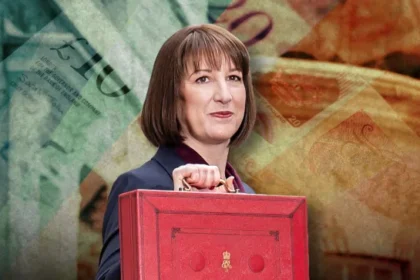Germany’s conservative leader, Friedrich Merz, has secured a landmark financial package to revitalize the country’s defense and infrastructure. This move comes ahead of a critical vote in parliament next Tuesday and marks a significant step in Merz’s plan to lead a coalition government with the Social Democrats. The deal, which includes substantial defense and climate initiatives spending, sends a clear message to Germany’s allies: “Germany is back.”
Merz’s Ambitions
Friedrich Merz, who aims to become Germany’s next chancellor, has prioritized strengthening Europe in the face of US President Donald Trump’s perceived indifference. After winning elections last month, Merz emphasized the need to bolster Europe’s defenses and infrastructure.
Previous Government’s Collapse
Germany’s last government collapsed in late 2024 due to disagreements over loosening debt restrictions introduced by Chancellor Angela Merkel’s government during the financial crisis of 2009. These restrictions limited the government’s ability to borrow more than 0.35% of Germany’s gross economic output, leading to underinvestment in critical infrastructure and challenges in boosting military spending.
The Spending Deal
After 10 hours of negotiations with the Greens, Merz announced a comprehensive financial package that includes:
- Defense Spending: A significant boost in spending on defense, civil protection, and intelligence, with spending over 1% of GDP exempt from debt restrictions.
- Infrastructure Fund: A special €500 billion fund for additional investments over 10 years, including €100 billion for climate-protection initiatives.
- State Borrowing: Germany’s 16 states will be allowed to borrow up to 0.35% of GDP above the debt limit.
- International Aid: The defense plans also exempt spending on aid for states “attacked in violation of international law” from the debt brake, enabling outgoing Chancellor Olaf Scholz to release €3 billion in aid to Ukraine as early as next week.
Political Reactions
- Social Democrats: Social Democrat chairman Lars Klingbeil praised the agreement as a “historical signal” that would strengthen Germany’s role in Europe.
- Greens: Although not part of Merz’s coalition, the Greens were pleased with the €100 billion secured for climate funding.
- AfD and The Left: The far-right Alternative for Germany (AfD) and The Left party opposed the reforms. AfD co-leader Alice Weidel accused Merz of bending the constitution and burdening future generations with a “gigantic burden.”
Constitutional Challenges
Urgent motions by the AfD and The Left to challenge next week’s sessions of the outgoing parliament failed at the constitutional court on Friday, allowing the vote to proceed. Merz needs a two-thirds majority to pass the changes, which he is expected to achieve with the support of the Greens and Social Democrats.
Potential Industry Shifts
- Defense and Infrastructure: The increased spending on defense and infrastructure could lead to significant advancements in these sectors, potentially creating new opportunities for businesses and job growth.
- Climate Initiatives: The €100 billion allocated for climate protection could drive innovation and investment in renewable energy and sustainable technologies.
Experts suggest that Merz’s spending package could mark a new era of German leadership in Europe, with the country taking a more proactive role in defense and climate initiatives. The coming months will be crucial in determining the long-term impact of these reforms.
Friedrich Merz’s historic spending deal signals a new direction for Germany, emphasizing the country’s commitment to defense, infrastructure, and climate initiatives. As Merz prepares to lead a coalition government, the deal underscores Germany’s renewed focus on strengthening its role in Europe. What are your thoughts on Germany’s new direction under Merz? Share your perspective below and subscribe for more insights into European politics and policy developments.
















